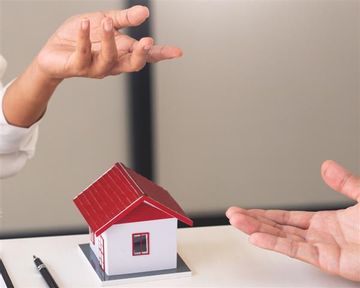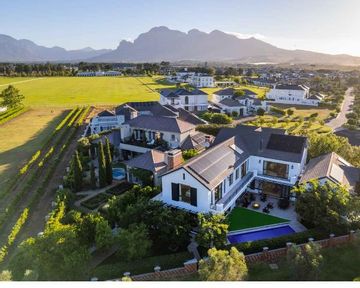The ins and outs of solar power
Regional Director and CEO of RE/MAX of Southern Africa, Adrian Goslett, says that going solar can lower the cost of running your home and also has the potential to increase the resale value of the property. “In South Africa, green features are becoming increasingly popular among buyers, especially as a result of the ongoing load shedding and the prevalence of droughts in our country,” he explains.
Noticing the importance of alternative energy solutions, Ian Ross, Broker/Owner of RE/MAX One, has recently partnered with Union Power Energy, a solar power company with an installation footprint in all major centres across South Africa.
“Lowering our individual carbon footprint is a must. In a sun-rich country such as South Africa, I strongly believe solar is the economic and environmentally responsible answer to powering our homes, which is why we have established a joint venture partnership with Union Power Energy which has been operating in the solar industry for the past 9 years.”
As a result of this partnership, Ross has gained some key insights into the solar power industry. He explains that while solar power can be costly, it is likely to become a necessity in most households. “Systems can range from R50,000 to R500,000 depending on the home and how far the homeowner wants to go to be independent of the grid. The capital outlay is heavy, so if the consumer could pay this off over a period using the savings they make from not utilizing the national grid, it would make perfect sense in every way.”
Thankfully, this option exists in the form of home finance. “The criteria may differ slightly from bank to bank, but all major banks welcome financing of residential, commercial, and industrial solar power systems. Access bonds on homes are by far the cheapest and quickest way to go other than upfront cash outlay,” he recommends.
Most homes are suitable for hybrid solar systems, but every house, apartment, building, factory, or site comes with various challenges. Ross says that older houses are more challenging as wiring and existing infrastructure is old or outdated. For these kinds of homes, as well as for commercial and industrial properties, a more detailed assessment should be carried out prior to a quotation. This can be arranged over a video call or a personal visit from one of the preferred installers in the area.
But, for residential homes, Ross explains that the assessment can usually be completed via a detailed questionnaire. “When conducting the assessment, solar power installation companies will ask a number of key questions in relation to the home. These include enquiring about the roof type to decide on the panel mounting structure. Tile roof, IBR, corrugated, clip-lock, or flat concrete slab are all suitable options. They’ll also ask where the main DB is situated in the home for installation purposes and cable runs.”
He adds that most systems are IP65 rated so they can withstand the elements to a certain extent but should be positioned away from water points. “Some systems can be placed outside in a suitable area if it is covered and free from direct rain. Coastal areas pose a challenge due to excessive moisture, rust, and wind. In these cases, the correct mounting structure must be insisted upon - stainless steel or aluminium.”
Those living in apartments might face greater challenges owing to roof space access. “There are smaller backup systems available that can be suitable for apartments, but there are many other product offerings available for those who want to go off-grid, such as gas cooking, gas geysers, and solar geysers. Borehole water with a filtration system can also be added to reduce a household’s reliability on the council water supply,” he recommends.
Ultimately, however one goes about it, reducing reliance on the national grid can benefit both the homeowner and the environment and might even add some value to the home. “Those hoping to upgrade the home to sell should speak to their local real estate professionals for advice on the best sustainable home improvements in their neighbourhood,” Goslett concludes.
Read here on how to prepare your home for switching over to solar power

